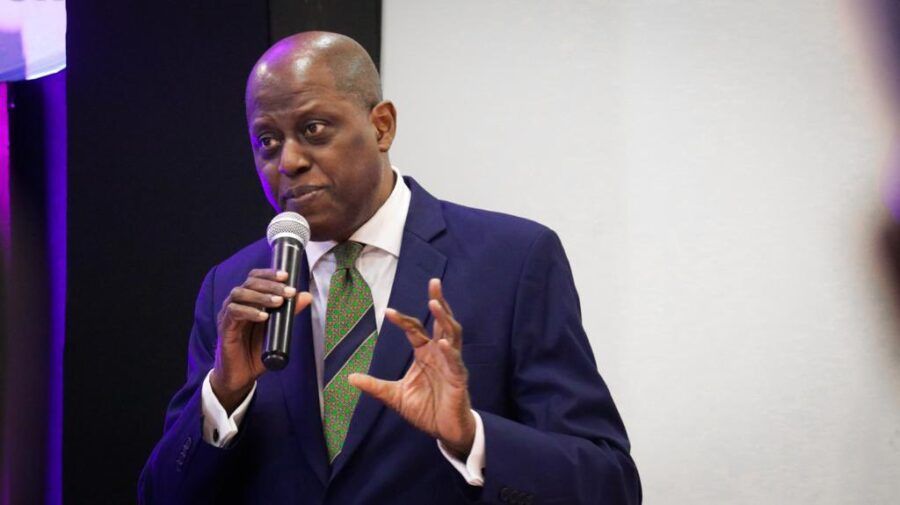Nigeria’s thriving Fintech industry is expanding the financial inclusion and cashless policies of the government. This is aside from providing mass employment to many Nigerians. But PAUL OGBUOKIRI reports that the extension of the N50 Electronic Money Transfer Levy (EMTL) would spell doom to the burgeoning industry
N50 Electronic Money Transfer Levy (EMTL)
The levy was initially introduced through the Finance Act of 2020 to replace stamp duty on electronic bank transfers. The EMTL was designed to generate revenue for the government while promoting digital payments.
Previously applicable to commercial banks, the levy now extends to to Fintech entities, signifying a broader regulatory approach to Nigeria’s rapidly expanding digital finance sector.
“The expansion is part of broader strategy to regulate and tax the digital economy as it grows,” says a finance expert, who does not want to named.
He further said that from individual users to businesses and broader Fintech ecosystem, the levy raises the important question about the financial inclusion, raised operational cost of POS operators and future of digital payments in Nigeria.
The funds collected through EMTL are to be shared across the three tiers of government at 15 pet cent for the Federal Government, 50 per cent for the state governments, and 35 per cent for the local government areas.
Professor of Economics at the Babcock University, Abiodu Adebowale, said while these allocations aim to support public projects, they also add to a layer of complexities to an already existing challenging economic environment.
FG begins N50 electronic levy deductions from Opay, Moniepoint, others
The Federal Government on Monday commenced deduction of the N50 electronic levy from transactions of N10, 000 and above made by users of financial technology (Fintech) companies, including Opay, Moniepoint, Kuda, and others.
The levy, called Electronic Money Transfer Levy (EMTL), places a singular and one-off levy of N50 on the recipient of any electronic receipt or transfer of N10,000 or above, and was earlier announced to take effect from September 9.
The introduction of the EMTL was, however, met with opposition from Nigerians, with various groups, including the National Association of Nigerian Students (NANS) calling on the Federal Government to reverse its position on the implementation of the levy.
Meanwhile, in a notice sent to customers earlier in September, Opay explained that the levy was imposed by the Federal Inland Revenue Service (FIRS), stating however, that it did not benefit from it.
“Please be informed that starting September 9, 2024, a one-time of N50 will be applied to electronic transfers of N10,000 and above paid into your personal or business account in compliance with the Federal Inland Revenue Service (FIRS) regulations.
“It is important to note that Opay does not benefit from this charge in any way as it is directed entirely by the Federal Government,” Opay explained in its earlier notice.
In a recent development, the Fintech companies again notified their customers that the implementation of the N50 EMTL deduction has commenced from December 1, 2024.
Opay, in a message sent to its users last week (also shared via its app), explained that the electronic levy deduction begins on December 1.
“Dear Customer, in line with the FIRS, the EMTL applies starting from December 1st, 2024,” the message read.
Likewise, Moniepoint in a notice sent to its customers on Saturday, explained that it has commenced implementation of the EMTL charges, clarifying however, that the levy will be remitted to the FIRS.
“Dear customer, you will be charged stamp duty of N50 on inflows of N10,000 and above. Moniepoint collects and remits this on behalf and to FIRS,” Moniepoint said.
Meanwhile, Sunday Telegraph gathered that the EMTL implementation has officially taken effect with Fintechs already deducting N50 for the Federal Government on transactions of N10, 000 and above.
Consumers kick as PoS operators raise charges
The Federal Inland Revenue Service (FIRS) implementation of the N50 Electronic Money Transfer Levy has sparked widespread condemnation from Nigerians, as Point-of-Sale (POS) operators increased their transaction charges across the country.
Operators of Point-of-Sale terminals raised their charges on Monday in line with the implementation of the Electronic Money Transfer Levy of N50 by the Federal Inland Revenue Services charged on any electronic inflow of N10, 000 and above.
Several Fintech platforms on Sunday notified their customers that they would start the collection of N50 as an Electronic Money Transfer Levy in compliance with the Federal Government Stamp Duty Act, which would be remitted to Federal Inland Revenue Services.
They further explained to their customers that “they are not benefiting from this but receives and remits this sum to FIRS.”
They clarified that the levy applies to all electronic inflows of N10,000 or more except when the electronic inflow is between Moniepoint accounts owned by the same user for example.
Lamenting over the imposition of the levy, a PoS operator in the Ikotun area of Lagos State, Adewale Abiola, said that he had been explaining to customers the reason for the hike in charges since then and was barely coping with annoyed customers.
“I have been explaining and it is tiring. Customers think you want to cheat them but all of us here have had to increase our charges because of this new levy,” he lamented.
A PoS operator in Yaba area of Lagos State, Mrs Helen Faniran, said: “I haven’t started collecting the charge but I have heard a few of my colleagues saying they would start. One of them said instead of charging N300 for N10,000, she was going to start charging N400.”
Asked why they were charging N300 for N10,000 in the first place, Faniran said “Cash is scarce here. Since morning, I have not been able to do any business.”
Asked how she sources her cash, she said: “We buy cash from market women and anyone ready to give us. Before the market women used to give us for free but now they sell to us. That has impacted our profit margin. Ordinarily, it would collect N200 for N10,000 but since we are buying and you have to go through a lot of stress to get your cash, you have to add N100 to it. The market women will give you N100,000 for N2,000 and we will do the same amount for N3,000.”
A PoS operator at the Agege area of Lagos State said the charges commenced on Tuesday.
In the Ajegunle area of Lagos, a customer said that there had been no increase in charges as of Monday.
Another customer, Deborah Attah, said, “They charged me N600 for N20,000 when it used to be N400. N5,000 is now N150 and N10,000 is N300.”
Levy a threat cashless, financial inclusion policies
The Central Bank of Nigeria predicted a decline in cash usage by 2025, further boosting digital payment channels.
Notably, cashless transactions skyrocketed to over N600 trillion by the end of 2023, up from N395.38 trillion in 2022. This upward trend persisted in 2024, with transactions soaring by 88.09 per cent to N237 trillion in the first quarter.”
But financial experts say this mandatory deduction is a disincentive to the cashless policy and financial inclusion, which the Fintechs had driven to the remotest areas of the country.
They further said that it was insensitive of the government to be imposing ‘additional tax’ amid the hardship being experienced by the citizens, while others showed no concern with claim that most commercial banks have been charging the levy more than a year.
Former Chief Economist at Zenith Bank, Marcel Okeke, said that the move was ill-timed and could have far-reaching negative consequences for the economy, particularly in the Fintech sector, which has been growing rapidly in recent years.
Okeke argued:“The Federal Government’s move to impose a N50 levy on Fintech transactions is driven by a desire to boost revenue. However, this approach may have unforeseen consequences. By targeting digital transactions, the government may inadvertently discourage people from using these services, leading to a demonetisation of the economy,” Okeke said.
Another economist, Alias Aliyu, described the government’s action as a “desperate move” to increase revenue, arguing that the current economic conditions do not justify such a measure.














